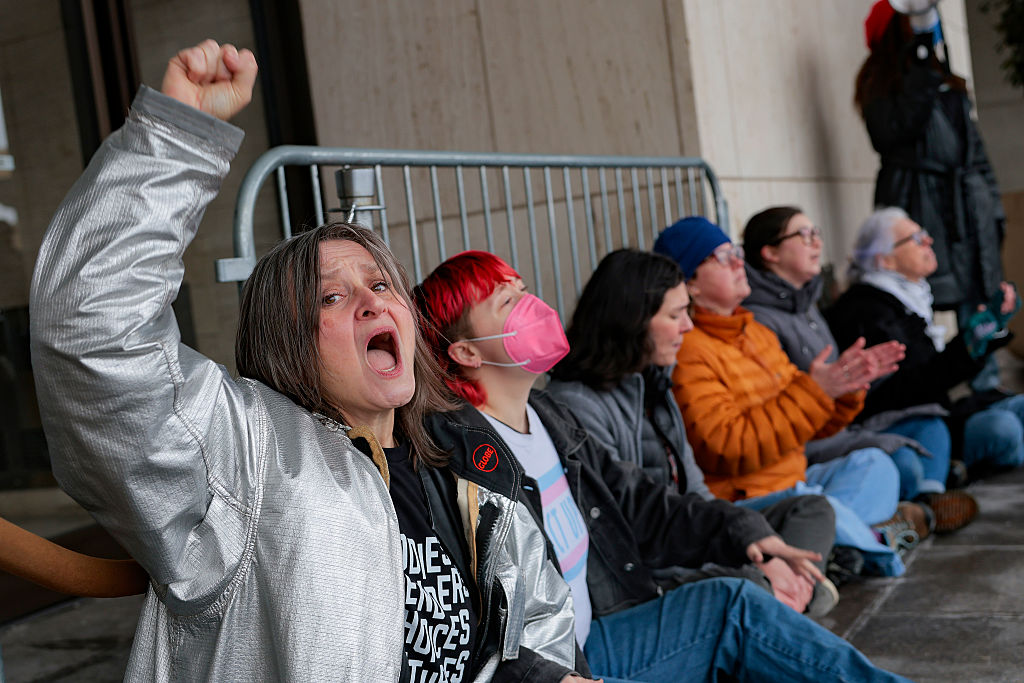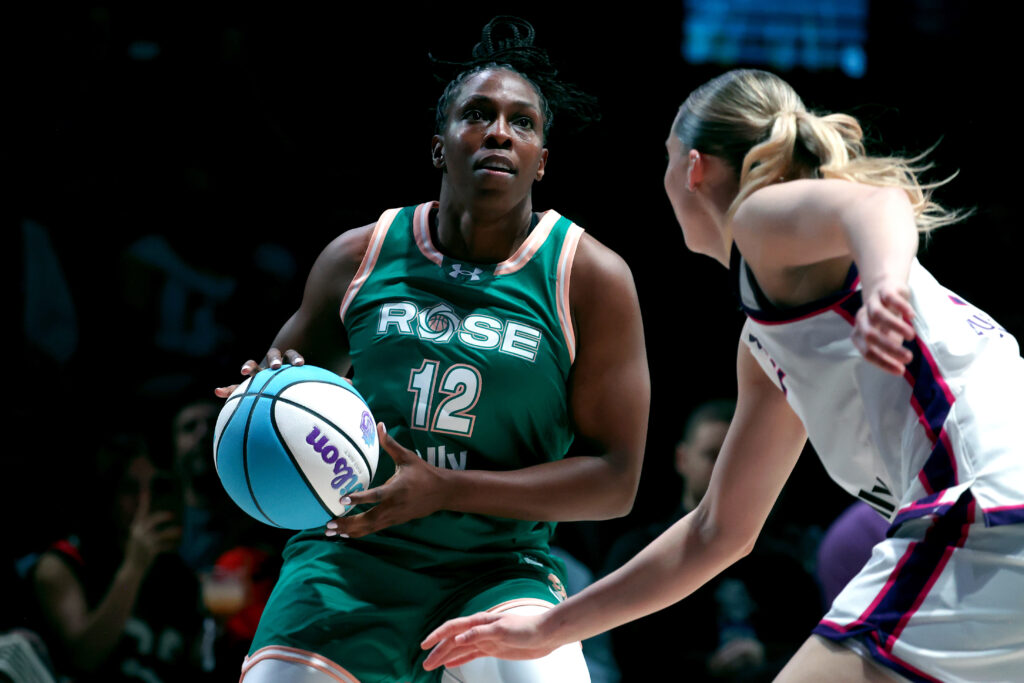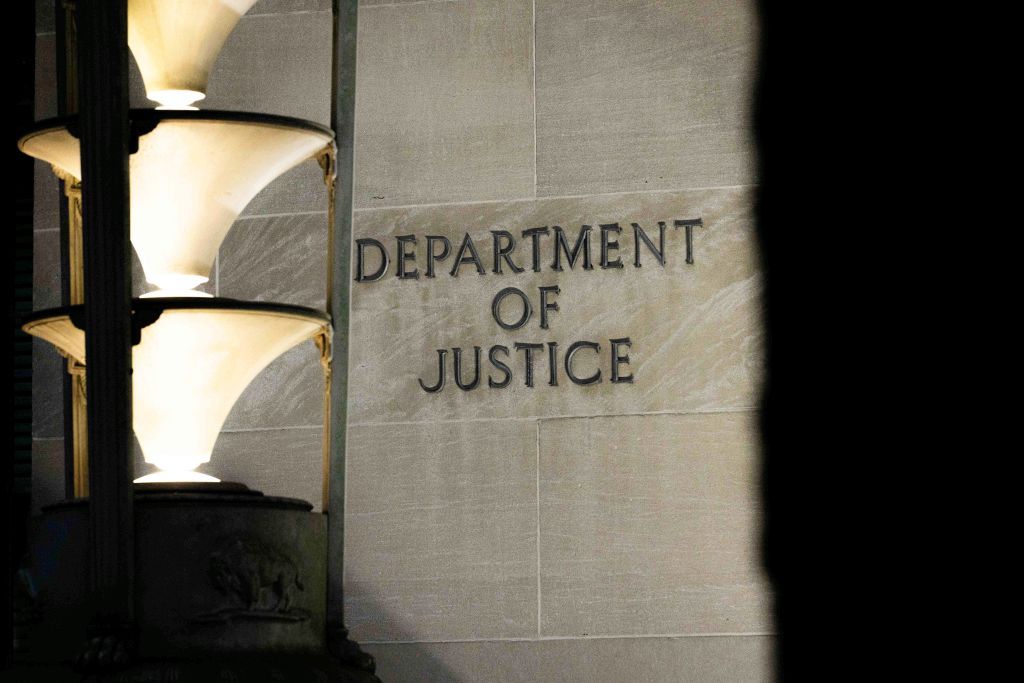The Magic Of A Lesbian Wedding On The Island of Lesbos
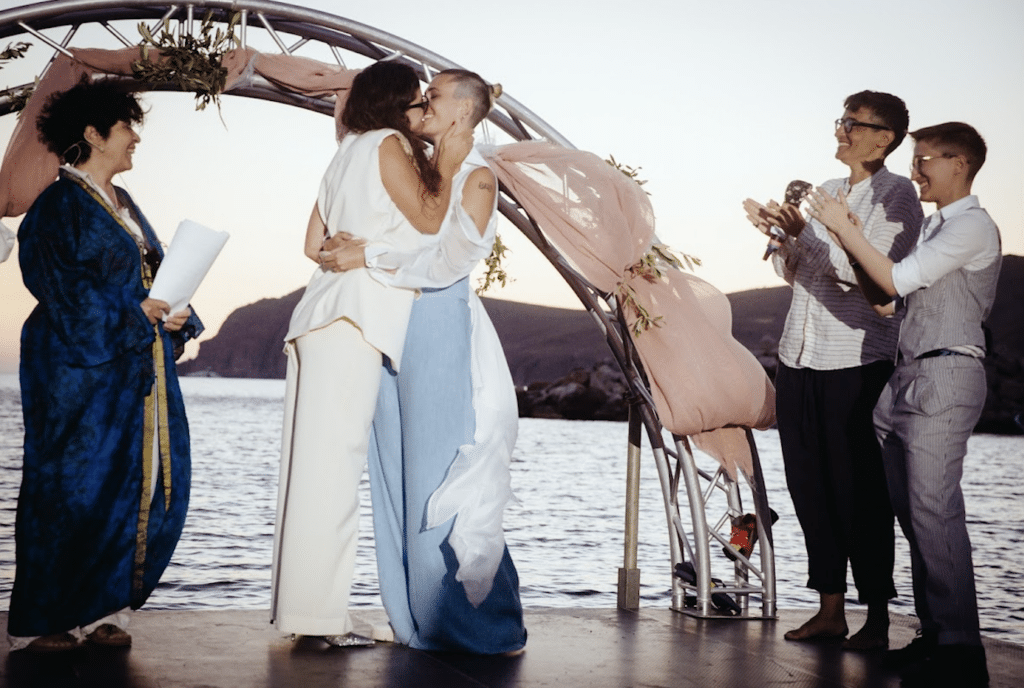
Countless sapphic love stories have unfolded on these shores, and this lesbian wedding felt like the culmination of generations of herstory.
Earlier this summer, I bore witness to the lesbian wedding of my wildest dreams. Hundreds of queer activists gathered in the harbour of Eressos, a tiny town on the Greek island of Lesbos, as the sun sank into the Aegean Sea. All around, fierce fighters of Sapphic rights – lawyers, politicians and economists, from Albania, Greece, Serbia, Italy, and elsewhere – stood weeping in wedding attire (mostly paired with Birkenstocks) as blue skies turned orange, then red.

The Brides, Dragana Todorović and Evgenia Giakoumopoulou, two of the world’s most prolific lesbian activists, soon pulled-up in the back of a pick-up truck, as Guns N’ Roses’ “Sweet Child O’ Mine” blazed through the sound-system. The congregation cheered and laughed through their tears.

“You came and I was crazy for you, and you cooled my heart that burned with longing,” said the wedding’s officiator, Tzeli Hadjidimitriou, quoting Sappho. “With these words, Sappho welcomed her loved ones here in Eressos, two-thousand six hundred years ago,” continued Tzeli, who’d driven in on a speed boat wielding a Labrys made of tin foil minutes before the couple’s truck pulled up.

“If someone had told me a few years ago, that here in front of the Aegean Sea, in the company of the statues of Sappho, on the edge of Greece, we would officially celebrate the love of two women, I would have thought of them as crazy, or as dreamers,” Tzeli, who is a community elder, filmmaker and a rare “double Lesbian” (a queer woman born on the island of Lesvos), continued.
Even the hardest butch’s heart strings strummed, and tears dropped to the sand as Tzeli and the couple’s “Best Dykes” spoke effusively of the power couple’s love, while the lyricism of Sappho’s poetry whispered to our very souls. Countless lesbian love stories have unfolded on these shores, and this ceremony felt like the culmination of generations of herstory. “I’d never seen my mum or dad cry,” said a stunned Todorović in the wake of the ceremony, while dykes who’d never considered marriage were suddenly scouring the reception for the one.

Todorović is Serbian, while Evgenia is Greek; both nations are majority Christian-Orthodox. Both of their families were present at the ceremony. In Serbia, despite their most recent prime minister, Ana Brnabić, being an out-lesbian, same-sex marriage is illegal and there has been significant pushback at any attempt to shift this. Greece became the first Christian-Orthodox nation to allow gay marriage (it passed with 176–76 votes early this year). Large rallies erupted on the streets of Athens in the aftermath of the ruling as concerned citizens brandishing crucifixes and Bibles chanted prayers of absolution in the Greek capital’s Syntagma Square.
In light of our rapidly shifting world – with great strides and great backlashes toward queerer expressions of life and love – to stand together at sunset and witness such an intergenerational and international celebration of love felt like a victory. Queer marriage has been tirelessly fought for by activists the world over, and two world-renowned lesbian activists merged their lives together on that dream-like evening by the sea.
I caught up with the newlyweds at their hotel a few days after the ceremony. Their colleagues and families were flying home, and the couple’s nervous systems were re-regulating after the magnitude of their big day. “I kind of went numb,” said Todorović, wearing white linens and statement glasses, “because of all the emotions and the complexity of everything: being here, having all these people from everywhere.”
We sat in a quiet, shady spot by the pool, as people with inflatables and mojitos ambled to the beach and back. This was their honeymoon, of-sorts, mused Giakoumopoulou, “considering our lives, I don’t know if we’ll have the time…” she said.
“I don’t count this as a honeymoon, no way,” Todorović interjected, “we will not get away with this.” She had, after all, spent the day in the capital city of Mytilene at a court case to ‘Save Eressos Beach’ from a construction project that would destroy the untouched and almost ineffable beauty of the shoreline. The activists, who’ve been partners for five years, are admittedly not the best at carving couple’s downtime into their annual calendars. They spend most of their lives between capital cities – rarely in the same place at the same time – igniting and weaving lesbian networks around the world.
Todorović became an activist when she was six years old. “I was the little butch girl,” she said, who stood up for the bullied “feminine, gentle, petite boy” in her class, who couldn’t turn a corner without someone calling him a “faggot” – not that any of her classmates knew what that meant.
“I knew that somehow this boy was similar to me, that we are one of a kind,” she said, “and I knew that I needed to protect him, because he was not able to do it for himself, and no one else cared.” Todorović was constantly getting into fights on his behalf, until their teacher summoned her to the front of the class asking her to explain herself:
“What is the girl’s name for a faggot?” she innocently asked her teacher.
“What do you mean?” the alarmed teacher replied, “a lesbian?”
“Yes!” six-year-old Todorović exclaimed in her native Serbian tongue, “ja sam lezbejka!” (I am a lesbian!).
“That’s when I learned the word. That’s when I also knew it about myself…and that’s how my activism started,” she continued, “and I never stopped getting into fights… now I’m doing these fights in a grown-up way but it’s the same core.”
At 43 years old, Todorović is now the Executive Director of the EuroCentralAsian Lesbian* Community (EL*C), a grassroots network of lesbian-feminist activists who ensure that queer women have a seat at the table in international fora. Earlier this year, the EL*C’s efforts led to the Parliamentary Assembly of the Council of Europe adopting the first-ever resolution on LBQ women. “It’s the first international human rights standard focusing specifically on us,” said Todorović. Power and diligence seem to drip from Todorović’s pores; her words are chosen and acerbic, she keeps her gaze fixed on the horizon – this is the definition of a power dyke. In her twenty-year career, as an academic and activist, she’s raised millions for grassroots lesbian organisations around the world, “and it’s only the beginning,” she promises. The EL*C recently moved their sizeable Headquarters to Eressos, so as well as being the energetic home of Sapphicism, this little island will soon be the geo-political hub of lesbian-kind too.
“It’s as if things that we wouldn’t think were within reach at all for grassroots lesbian organisations, all of a sudden are, because of Dragana,” said Giakoumopoulou. “She will move the world to make it better for the things she believes in. And luckily for all of us, she believes in the Lesbian Genius more than anything.” By ‘Lesbian Genius,’ she is referring to the power of lesbians, due to our unique positionality and the ways we often experience intersections of oppression in racist, patriarchal and capitalist systems all over the world. With Dragana at the helm, the EL*C works to acknowledge and uproot these intersectional oppressions, then through cross-cultural collaboration, the organisation works to harness this heightened consciousness to fight against all forms of oppression (including militarism and [neo-]colonialism), and thus create a more just and equitable world for all.
Giakoumopoulou, who’s 38 years old and undoubtedly her wife’s “number one fan,” has equally devoted her life to expanding LGBTQ+ rights. To start, it was social justice in general, then she joined EL*C in 2017 – which is how the couple met – and now she has nimbly climbed the ladder to head up the Council of Europe’s Sexual Orientation, Gender Identity and Expression, and Sex Characteristics (SOGIESC) Unit. Todorović describes her wife as someone who “embodies a lot of characteristics, as a person, and as a professional that can navigate the difficult space of fighting institutions from within.”
Todorović speaks with admiration of her wife’s resilience, sense of duty and sacrifice for LGBTQI+ people, and credits the passing of the first resolution of LGB women’s rights to her. To which, Giakoumopoulou, who “spends [her] life bragging about Dragana,” queries: “Can we do these meetings weekly — I had no idea you felt any of this!”
Giakoumopoulou is a self-proclaimed people-pleaser, which means she’s always trying to make people – most notably her wife – laugh. In their initial days as colleagues at the EL*C they were meeting on Zoom every day, and Todorović, in her role as Director, “had this really intense Poker Face,” said Giakoumopoulou, who was then EL*C’s Chair of the Board. “And yet, she would laugh at my stupid jokes. And really that became my purpose in life… it didn’t occur to me that I could seduce her, but I wanted her to break character,” she said.
“So wait, it was all about my brains this whole time,” queried Giakoumopoulou, still floating from her wife’s adulations. She’s also a boxer, with a short back-and-sides and a Labrys tattooed on her bicep. “And you’re sexy,” added Todorović. They flirtatiously gazed into each other’s eyes, like they met last week. Their synergy was palpable as we conversed by the pool; they are completely and mutually awed, inspired and smitten by the other.
The Labrys’ — “the ultimate lesbian symbol,” said Todorović of her tattoo — played a sizeable role in their wedding day. The couple wore matching silver necklaces and wielded officiator Tzeli’s jumbo tin foil Labrys to slice their wedding cake. Giakoumopoulou explained that “lesbians are always seen as serious, fighters, castrators, hysterical, whatever else… but I think we have so much damn humour and self-derision, making fun of our own dyke-drama and exaggerations.” She admitted that she’s been rewatching their wedding videos and laughing out loud at the “ridiculousness and awesomeness” of the day.
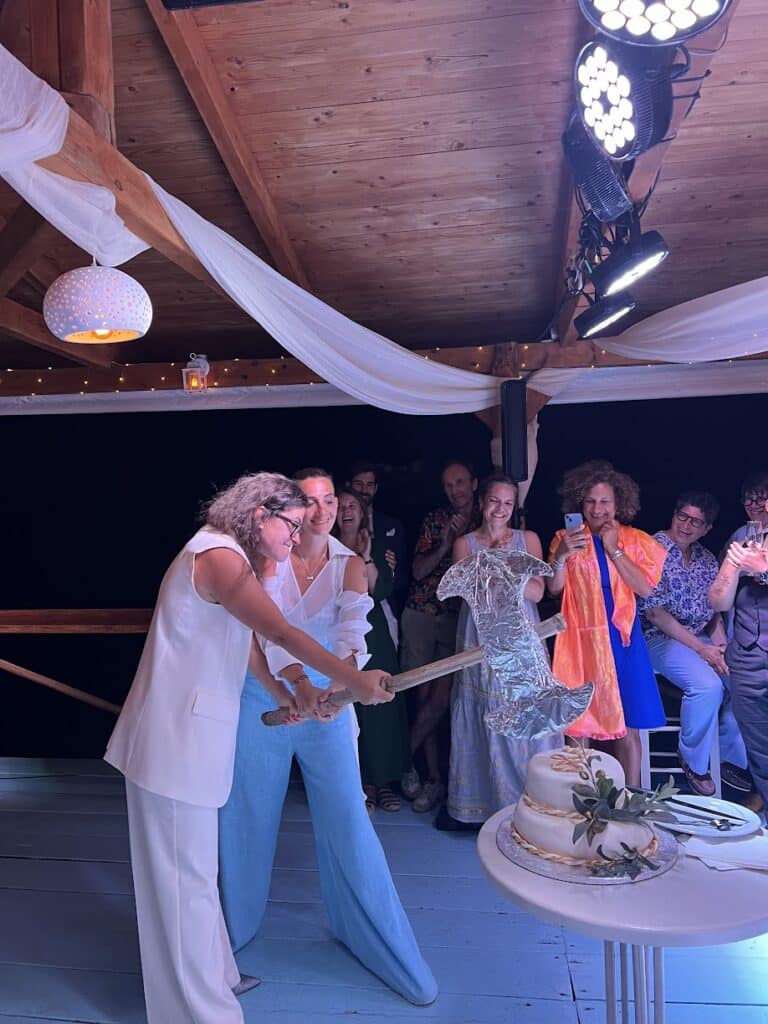
After the ceremony on the harbour, the teary congregation was herded to a lesbian bar on the shore. No expenses were spared; the entire Eressos community was invited and an abundance of food and bubbly awaited guests under a crescent moon.
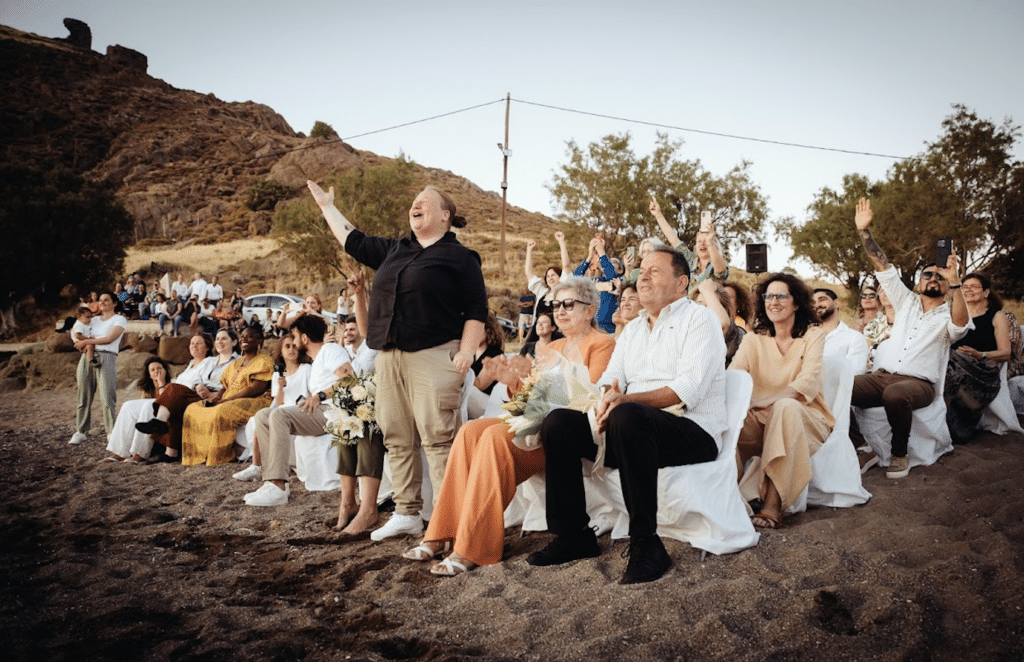
Locals and lesbians took to the dancefloor en masse, though the most notably joyful dancer was Tzeli. At 66-years-old, this double lesbian has experienced firsthand how far Greece has come, and how the acquisition of LGBTQ+ rights has permitted more love to be sought, expressed, and embraced in this world. To stand hand-in-hand in front of our loved ones with the state’s blessing is a brand-new phenomenon here. Todorović and Giakoumopoulou’s supremely significant wedding was a sacred moment for us all, one in which we could celebrate this time, and this place, in which Sapphic dreams really do come true.
Find out more about the EuroCentralAsian Lesbian* Community (EL*C)







